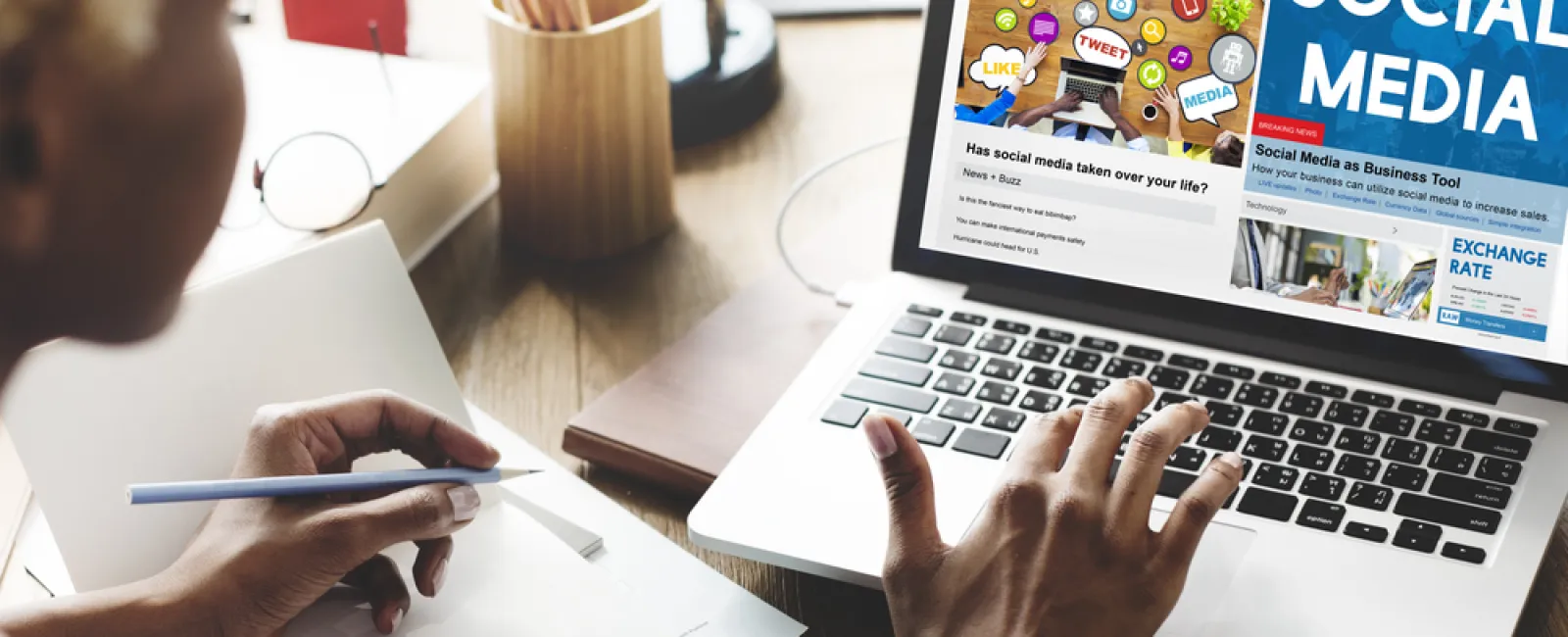What's in Your Social Media Policy?
A few years ago, when we posted our article titled Posting with Caution: Social Media and HIPAA Compliance, we mentioned how powerful social media could be for communicating general healthcare information to the public, creating professional connections, and sharing experiences.
Social media can be defined as an application used to connect, comment, reply, rate, or post the information - including pictures or videos - in addition to social networking, blogging, online forums, media sharing sites, cell phone photography, electronic searching, texting, and emailing.
During the current COVID-19 pandemic, social media has proven to be extremely effective for communication and sharing healthcare information with the public. While there have been a lot of good things social media is being used for, there have been some bad actors sharing false and misleading information. Healthcare organizations with a social media presence should have a social media policy.
According to the U.S. Department of Health and Human Services (HHS), the use of social media technologies must follow the current laws and standards that govern information and information technology. To ensure compliance with laws and standards that govern information and information technology (e.g., HIPAA), and in a way that demonstrates a commitment to confidentiality and response, healthcare organizations should have a documented, implemented, and enforceable social media policy.
Here are some essential procedures your social media policy should include:
Compliance with standards of patient privacy and confidentiality. In other words, it is important not to post any identifiable information online unless you have authorization from the patient/individual or unless posting in a patient portal.
Employees should maintain separate personal and professional social media content. In the healthcare industry, it is important to not "blend" business and personal accounts. Additionally, employees should not connect with patients or the patients' families on their personal social media sites. Instead, advise patients and their families to connect to the organization's social media page, or if the employee maintains a professional social networking website, that may be acceptable.
Require privacy settings to be set for personal and professional social networking websites. Privacy settings such as who can see your stuff, who can contact you, who can look you up, and others can be set. Healthcare organization employees should make sure their privacy settings guard their personal information and audience.
Observe all ethical boundaries and guidelines while connecting with patients through the employee's professional social media websites. Healthcare organizations should ensure any information provided on social media platforms is intended for educational purposes only. In no way should any information be used as an endorsement, as a substitute for professional medical advice, diagnosis, or treatment.
Advise employees to never post in response to unfavorable comments on health care rating websites. Responding to negative or unfavorable comments or anonymous comments requires careful attention. The compliance officer and leadership of a healthcare organization should decide if a response or action is necessary.
Recognize that anything said or otherwise posted on social media websites is in the public domain and potentially subject to discovery. "If you wouldn't say it openly in a coffee shop do not post it on social media." Always use caution when posting anything on social media.
Never post anything that is defamatory, profane, libelous, threatening, harassing, abusive, obscene, knowingly false, or otherwise inappropriate. During pandemics and natural disasters, it is common for controversial material to go viral. For example, when Plandemic, a 26-minute conspiracy video, was first posted the first week of May 2020, the video spread on social media resulting in millions of views. Healthcare organizations and employees with professional social networking sites should be sure not to spread anything controversial.
As long as your organization and its employees are following
the current laws and standards that govern the privacy and confidentiality of
information, and information technology
security, social media can be a useful tool for communication and sharing of
healthcare information, especially during a pandemic or natural disaster.

